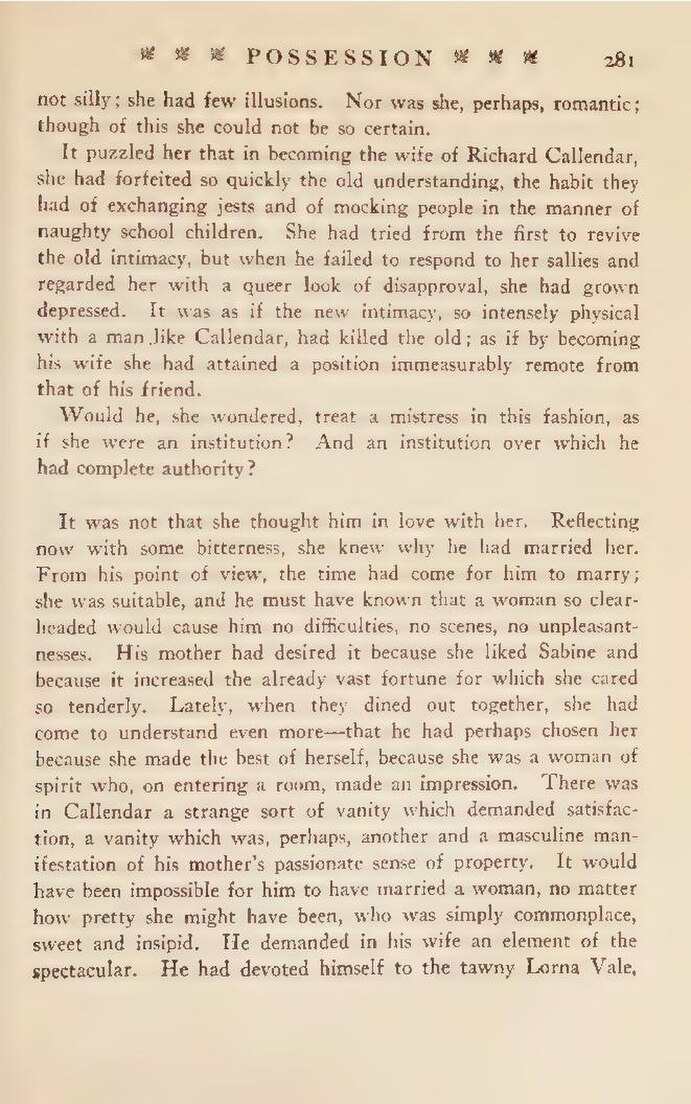not silly; she had few illusions. Nor was she, perhaps, romantic; though of this she could not be so certain.
It puzzled her that in becoming the wife of Richard Callendar, she had forfeited so quickly the old understanding, the habit they had of exchanging jests and of mocking people in the manner of naughty school children. She had tried from the first to revive the old intimacy, but when he failed to respond to her sallies and regarded her with a queer look of disapproval, she had grown depressed. It was as if the new intimacy, so intensely physical with a man like Callendar, had killed the old; as if by becoming his wife she had attained a position immeasurably remote from that of his friend.
Would he, she wondered, treat a mistress in this fashion, as if she were an institution? And an institution over which he had complete authority?
It was not that she thought him in love with her. Reflecting now with some bitterness, she knew why he had married her. From his point of view, the time had come for him to marry; she was suitable, and he must have known that a woman so clear-headed would cause him no difficulties, no scenes, no unpleasantnesses. His mother had desired it because she liked Sabine and because it increased the already vast fortune for which she cared so tenderly. Lately, when they dined out together, she had come to understand even more—that he had perhaps chosen her because she made the best of herself, because she was a woman of spirit who, on entering a room, made an impression. There was in Callendar a strange sort of vanity which demanded satisfaction, a vanity which was, perhaps, another and a masculine manifestation of his mother's passionate sense of property. It would have been impossible for him to have married a woman, no matter how pretty she might have been, who was simply commonplace, sweet and insipid. He demanded in his wife an element of the spectacular. He had devoted himself to the tawny Lorna Vale,
